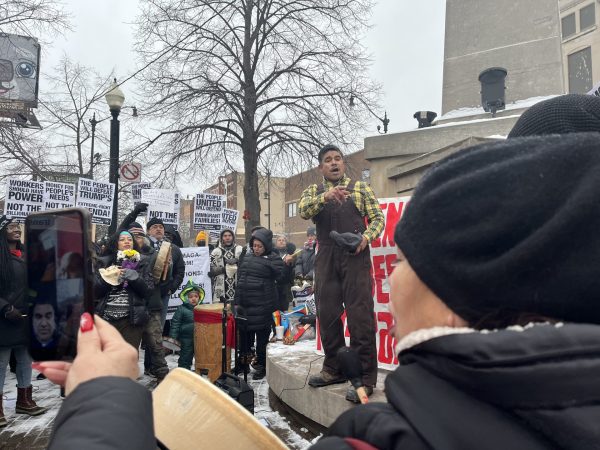What to know about H.R. 40: The House Reparations Bill
Credit: AP
House Judiciary Committee Chairman Jerrold Nadler, D-N.Y., listens as his panel holds a markup of a bill to create a commission to study and address social disparities in the African American community today. (AP Photo/J. Scott Applewhite)
A House committee voted to move forward with legislation aimed at creating plans to remedy the lasting effects of slavery. This is the farthest the legislation has gone through Congress since it was originally introduced in 1989 by former Democratic Rep. John Conyers.
Reparations legislation has been introduced in every session of Congress since 1989, but this is the first time it has been voted out of committee. The legislation now has the support of more than 170 Democratic co-sponsors and key congressional leaders.
The past year has seen a national reckoning on race, and efforts to address the underlying issues plaguing the United States has revitalized initiatives to address the lasting impact slavery has had on modern-day race relations. The bill, H.R. 40, would create a 13-member commission dedicated to studying the causes of racial discrimination and disenfranchisement of Black voters, dating back to the nation’s history of slavery. Then, the committee will present proposals of rehabilitation and restitution to Congress.
If H.R. 40 gets passed in the House, it still presents a significant challenge in the Senate. The bill would still require the necessary 60 votes in order to pass the Senate filibuster, a nearly impossible feat as the bill faces opposition from Republicans in both chambers.
In 2019, Senate Minority Leader Mitch McConnell spoke out against reparations in a House hearing on the topic.
“I don’t think reparations for something that happened 150 years ago, for whom none of us currently living are responsible, is a good idea,” McConnell said.
The hearing in 2019 was the first time the topic was discussed in years and it was the first time McConnell discussed reparations since being elected to the Senate, according to the Associated Press.
McConnell’s view on the issue, however, does not take into account the lasting impacts slavery has had on U.S. race relations. Texas Rep. Sheila Jackson Lee, the lead sponsor of the bill, asks Republicans not to discount the impact of this legislation.
“I ask my friends on the other side of the aisle, do not cancel us tonight,” Jackson Lee said at the committee vote on April 14. “Do not ignore the pain, the history and the reasonableness of this commission.”
If passed, it would not be the first implementation of a reparations program available for Black Americans.
In March, the Evanston City Council approved the Local Reparations Housing Program, according to an analysis of the program by NPR. The program will grant qualifying households up to $25,000 for housing repairs and down payments.
There is, of course, substantial criticism of the program by local activists due its narrow reach and specified focus on housing.
It is still unlikely that H.R. 40 will pass in the House, much less the Senate. If anything, the landmark the bill has reached by making it past a committee vote is a symbolic achievement, but it does imply that conversations on the topic may be expanding and the implementation of this legislation may still be possible in the future.













Jason / Jul 6, 2021 at 12:57 pm
What statement did he make that says he would have slaves in 2021??? There is None because he didn’t say that and you’re putting words into words into someone’s mouth and saying facts that are really not thats false pretense. I Agree with what Mitch was saying. Look Slavery was horrible but no one in my family line have never ever owned a slave? So why should I have to pay the price for something I myself or my family ancestors had no part in at all over 150years ago! This kind of stuff is used to divide our country and turn us against each other because the illuminate Eliots (behind the curtain of government) wants us to be just like that! So detracted by fighting with each other. So we are not looking at all the ways they have fucked the American people in past and continue to suppress us and screw us financially slowly taking away our rights and throwing people in prison while certain people in political power have broken the law some of which should be charged with crimes against humanity but instead they walk around free without having to pay for their actions what so ever until we the American people rise up against them physically take them out of office and make them pay. This shouldn’t be about White VS Black VS Brown. This should be about the people of this country rising up against our Corrupt Government because We All Bleed Red White and Blue No Matter What Color our Skin Is.
Charles / Jun 4, 2021 at 8:29 am
Passing the bill is the right thing to do. The hurt our ancestors went through has a lasting effect on us as well. What was done to them was shameful and disgusting. The statement MITCH MADE SHOWS THAT IF HE COULD HAVE IT HIS WAY HE WOULD HAVE SLAVES IN 2021. BE CAREFUL WHO YOU VOTE TO TO REPRESENT YOU PEOPLE.